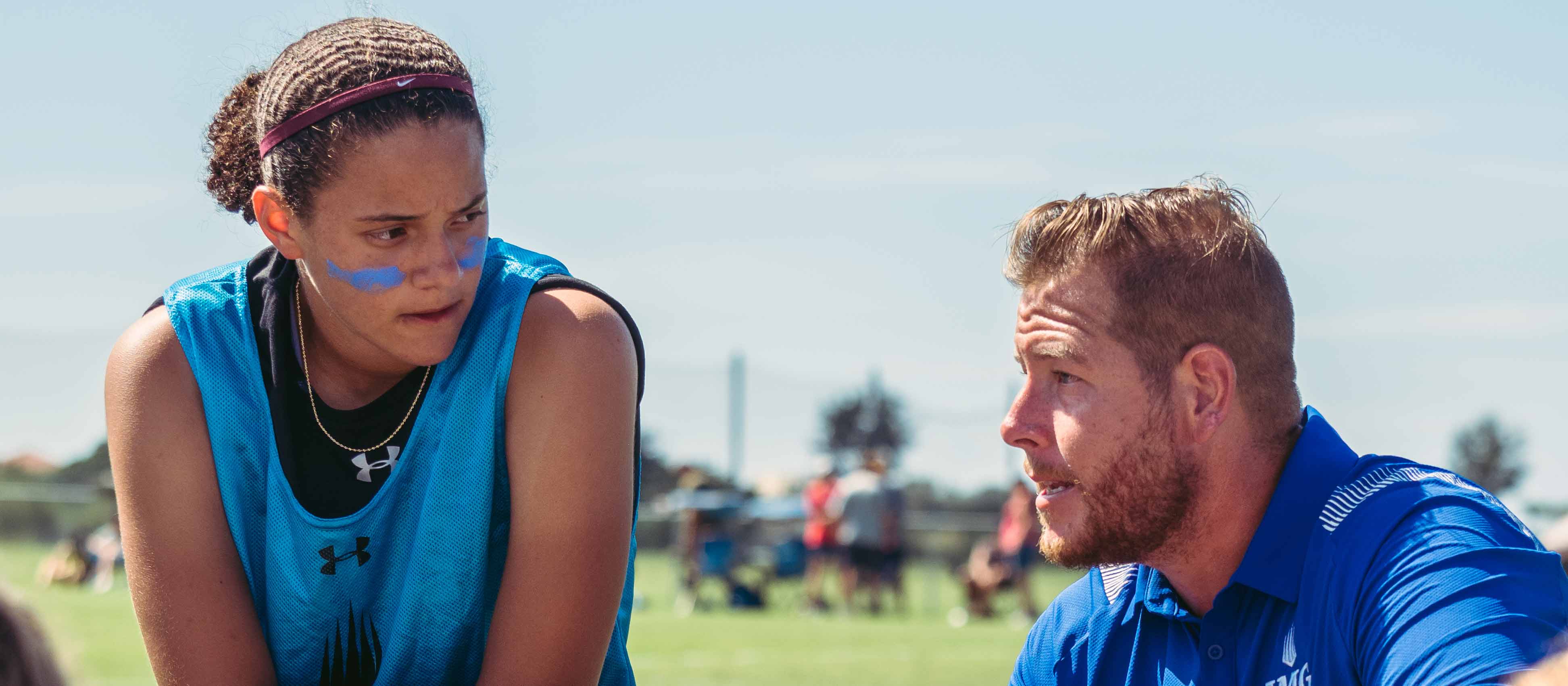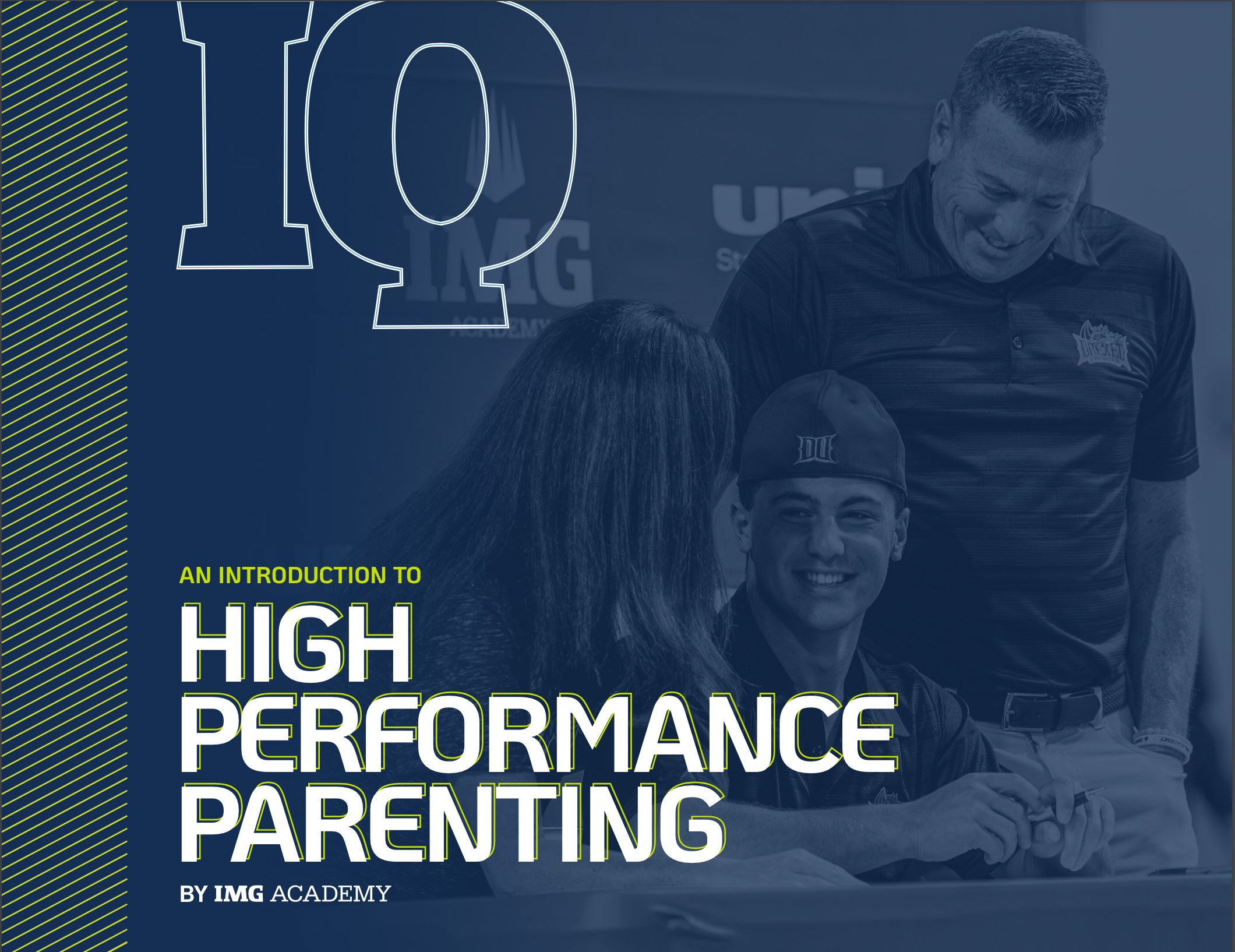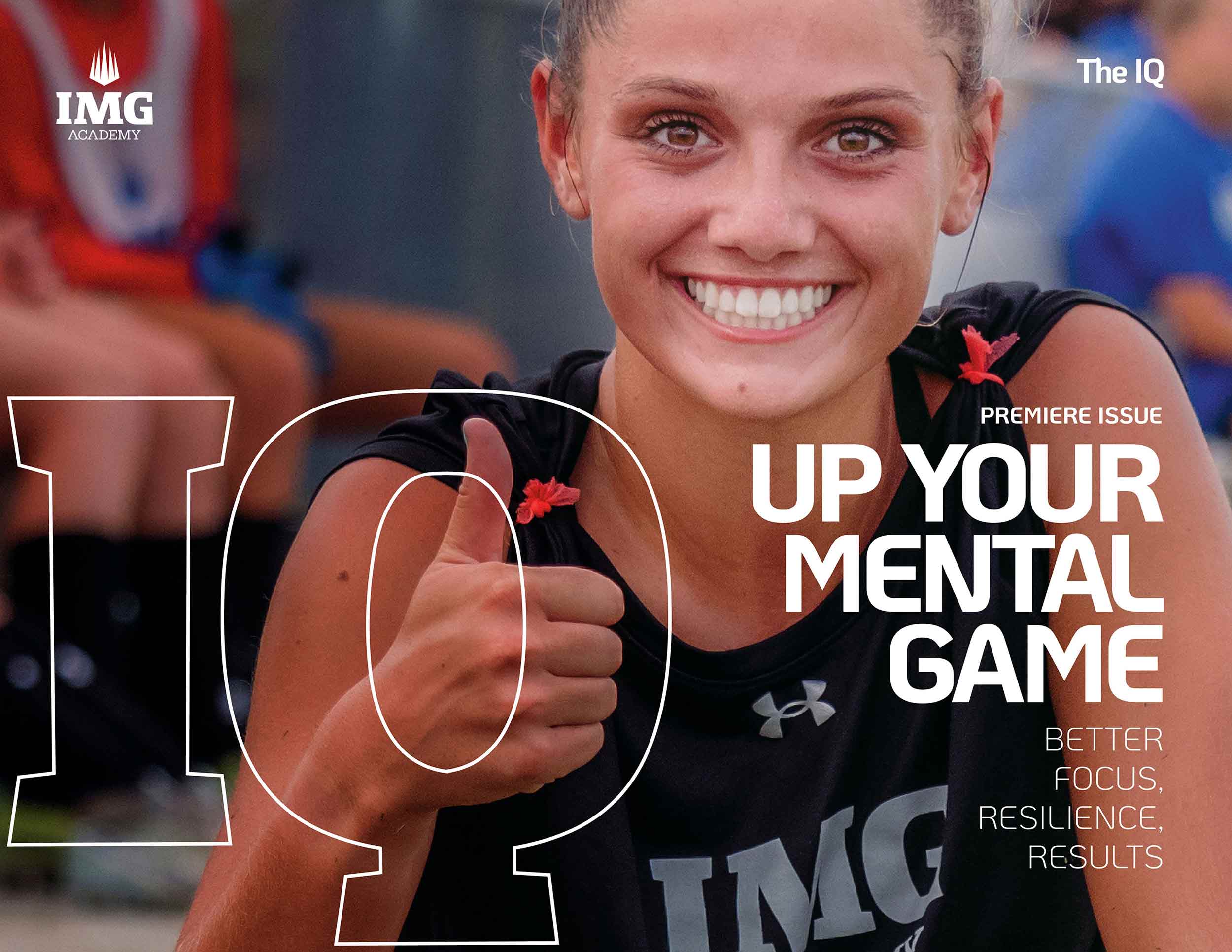
As parents, we often think about ways to help our high-performance young athletes succeed, from how to help them with training and nutrition to providing them with the resources they need when it comes to equipment, transportation, and money. One of the items that' typically addressed less frequently but is equally important is how we are supporting our high-performance athletes mentally as well as how our behavior could be impacting them. Director of Personal Development at IMG Academy, Duncan Simpson, PhD, CMPC, was at the Dunlop Courtside Chats Series to talk about supporting our tennis training athletes' mindsets from the sidelines:
Prior to the Match
Think about helping to enhance your son's or daughter's readiness, concentration, control, composure, and consistency prior to their match.
- Readiness: Help them get ready by asking them "what is your goal for today?"
- Concentration: Encourage them to focus on the process of performance rather than the outcome.
- Control: Emphasize the importance of positive body language.
- Composure: Tell them to give their best effort.
- Consistency: Remind them to be consistent and follow their routines.
During the Match
There are ways for you, the parent, to behave that will help you support your athlete during competition.
- Model sportsmanship: Good sportsmanship is initially learned at home.
- Demonstrate your own emotional control: Your child will feed off of your emotional responses, so demonstrating control while they play is critical.
- Display positive body language: Your child will likely be looking at you during their match, so make sure your body language is encouraging.
- Stay off your phone: Not only can talking on the phone during a match be distracting to athletes, coaches, and officials, but it's also rude and disrespectful to your child while you're trying to support them.
- Smile and encourage: This relates back to displaying positive body language. Remember that your child will feed off of your energy, so keep it encouraging!
- After the Match: think about helping to enhance your son or daughter's coachability, attitude, adaptability, confidence, and motivation after their match.
Coachability: Win or lose, encourage your child to use the match as an opportunity to grow their game. Ask them what did you learn today?
- Attitude: Help them see the positives in their match by asking them "what did you do well today?"
- Adaptability: Remind your child that mistakes are opportunities to improve. Ask them "how did you fail and respond today?"
- Confidence: Tell your child that they should be proud of their performance.
- Motivation: Keep it simple, tell your child "I love watching you play."
Things to Remember
Before you speak to your child about their athletic performance, there are three questions you should ask yourself:
- Does this need to be said?
- Does this need to be said by me?
- Does this need to be said by me right now?
Be mindful of your child's particular needs before, during, and after a match, and keep these questions in mind before speaking to them (even if your intentions are good).
Helping Your Child Strengthen Their Mental Toughness
Outside of competition day, you can help your child develop and strengthen their mental toughness. Mental toughness is a complex psychological construct, as almost every desirable psychological characteristic has been categorized under mental toughness at one time or another. Simpson says that some of the most common attributes that mentally tough athletes possess are:
- Successfully managing anxiety, pressure, and other emotions
- Staying focused
- Finding balance and keeping perspective
- Being confident
- Summoning motivation and desire
- Effectively dealing with adversity and failure
- Overcoming physical and/or emotional pain and hardship
Try These Activities with Your Child
Simpson suggests having your child write down the four categories listed below, and then you can work with them to list the mental skills that are needed for each of those skills. For example, a marathon runner might write regulating emotions, self-belief, awareness, and control of thoughts under the competition category. Overlap within the categories is okay!
- Attitude/mindset
- Training
- Competition
- Post-Competition
Another activity that you and your child can do is to write down the five categories below, and then identify what their strengths and weaknesses are under each category. Once you have created these lists, have your child write "WHO I AM" on another sheet of paper. They will then write about who they are as a person, incorporating the lists they just generated. This tactic will help you and your child gain insight into their personal mental toughness.
- Specific values
- Attitudes
- Beliefs
- Emotions
- Self-regulations/awareness skills
Parents are a critical part of high-performance athletes. Just as their coach is critical to growing their physical game, you are an important part of them developing a healthy mindset when it comes to competing. It is important to remember, however, that developing mental toughness is a commitment that your child will need to make to shape the values, attitudes, beliefs, emotions, and self-regulation skills we discussed in this blog. Simpson reminds us that it is a process that takes time, and some athletes will develop these traits with ease, while others will have to work harder at it.
Download the High Performance Parenting guide and work through five modules to guide you through supporting your student-athlete.
Download Now









